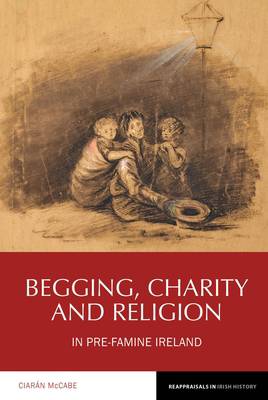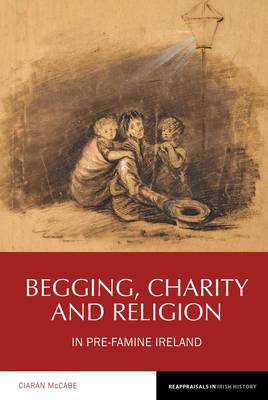
- Afhalen na 1 uur in een winkel met voorraad
- Gratis thuislevering in België vanaf € 30
- Ruim aanbod met 7 miljoen producten
- Afhalen na 1 uur in een winkel met voorraad
- Gratis thuislevering in België vanaf € 30
- Ruim aanbod met 7 miljoen producten
Zoeken
Omschrijving
An Open Access edition of this book is available on the Liverpool University Press website and the OAPEN library.
Beggars and begging were ubiquitous features of pre-Famine Irish society, yet have gone largely unexamined by historians. This book explores at length for the first time the complex cultures of mendicancy, as well as how wider societal perceptions of and responses to begging were framed by social class, gender and religion. The study breaks new ground in exploring the challenges inherent in defining and measuring begging and alms-giving in pre-Famine Ireland, as well as the disparate ways in which mendicants were perceived by contemporaries. A discussion of the evolving role of parish vestries in the life of pre-Famine communities facilitates an examination of corporate responses to beggary, while a comprehensive analysis of the mendicity society movement, which flourished throughout Ireland in the three decades following 1815, highlights the significance of charitable societies and associational culture in responding to the perceived threat of mendicancy. The instance of the mendicity societies illustrates the extent to which Irish commentators and social reformers were influenced by prevailing theories and practices in the transatlantic world regarding the management of the poor and deviant. Drawing on a wide range of sources previously unused for the study of poverty and welfare, this book makes an important contribution to modern Irish social and ecclesiastical history.Specificaties
Betrokkenen
- Auteur(s):
- Uitgeverij:
Inhoud
- Aantal bladzijden:
- 320
- Taal:
- Engels
- Reeks:
- Reeksnummer:
- nr. 13
Eigenschappen
- Productcode (EAN):
- 9781786941572
- Verschijningsdatum:
- 29/10/2018
- Uitvoering:
- Hardcover
- Formaat:
- Genaaid
- Afmetingen:
- 163 mm x 236 mm
- Gewicht:
- 612 g

Alleen bij Standaard Boekhandel
+ 223 punten op je klantenkaart van Standaard Boekhandel
Beoordelingen
We publiceren alleen reviews die voldoen aan de voorwaarden voor reviews. Bekijk onze voorwaarden voor reviews.











